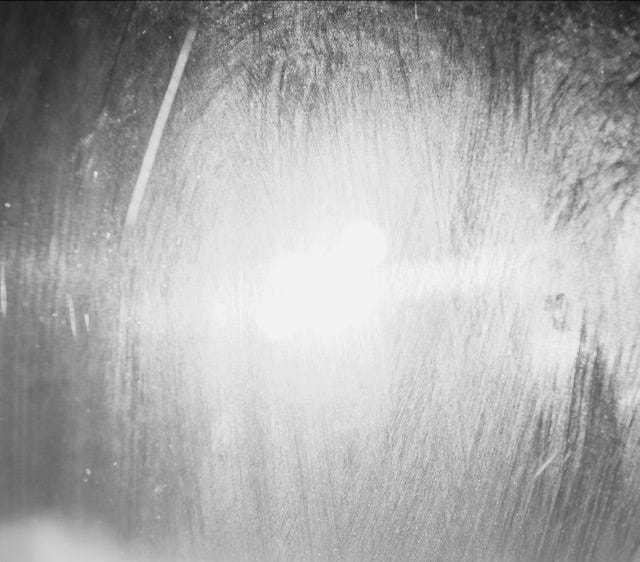Key Questions To Know The Answers To For A Fulfilling Life
Who am I? Who am I not? Who am I becoming?
At the center of our beings is a space of light that holds our truest self. Energetically, to those of us who can see in more than one dimension, anything alive looks like a star. This star is the source point in our bodies for our truest self. We call it core. We call it essence. It is who we are without the trappings of our mortal body.
To truly understand ourself, we have to know what types of energy this light is composed of. It’s got a resonance that is completely unique to us. It has an expression that is special to having the life we want and finding purpose to being alive. So many people walk around never even acknowledging their light, let alone knowing or being interested in what it is composed of. Today I am offering an exploration of vital questions to ask the self that allow life to unfold with less struggle and more compassion, purpose, and perspective.
In America, when meeting people and being asked who we are, the social norm is to respond by answering a different question. “What do you do?” We respond to someone’s desire to know who we are with our work, our identity as a partner or a parent, our social standing, perhaps our religion or our beliefs. In other countries, this is an odd response. People are interested in pastimes, interests, hobbies and life style choices. The same is true in transformational groups that meet just once or over time. In these we can get away with no story of social identity. The problem lies if we ourselves define the interest in identity the same way as the expected answer. When we put aside the societal expectation of self identity and sink into the life we have led and the person we have always been, we will find a very different answer than just a surface or patent response.
Living a life that is beyond the surface requires a sense of self, a sense of other than self, and a sense of path or purpose. However, we all know that there are so many pitfalls that can get in the way of us understanding ourselves. From shadow and unconscious come the changes that will sometimes feel like they threaten the core self. From tendencies to merge, entwine, caretake, or lose the self in others come identities that surround the self and cloud our understanding of the core self. Add to this the solid ways we define our self that are in defense as well as the myriad of emotions that we avoid and we can easily lose track of the life we have, who we are, and the life we want to lead.
Who Am I?
Whenever I ask a person this question, I ask it as an invitation. I’m actually asking this of you right now. This in an invitation to learn something about yourself. Just quickly ask yourself the question and notice the first response you get. How you first think about answering this question gives you information on how you feel yourself in relation to the world. Try to not judge and discern how you take this question up. Get the information on how you answer it to understand how you define yourself.
Most of the time our primary inquiry into the self is answered reflexively, not as an invitation for an internal exploration. To be fulfilled in what we do and how we do it, we need go beyond the easy answer. We have to be interested in the depth answer to the question of self not just the socially programmed response.
We need to be able to be self assess what a piece of us has followed us through ever iteration of self - no matter how lost we have been or hurt we have gotten. These qualities in us that we cannot lose no matter what pain we experience are based in the core self. These core self qualities are compiled differently in everyone. They are what makes us our most unique and valuable selves.
Of course all of us have messy attributes that we need to learn to accept and live with. We also all have a self identity that is stuck in some sort of defensiveness to avoid our vulnerable underbelly. Sometimes we can get lost in thinking these attributes are who we are. When we can’t carry an inquiry of self through the defensiveness or messiness into the core of our being, we are avoiding our self. Whenever we get an answer to this inquiry that is not pure, we have not yet hit our core.
To live a life with both discernment and fulfillment, we need to understand the nature of our own being. Only by accepting the truth of our own essence can we begin to follow the path of our fulfillment.
The qualities of the core self are undefended. They do not have push or reactivity or intensity to them. They are a solid ground within your own being. They combine to make you you. Words such as…
compassionate, innocent, sweet, mothering, father figure, grounded, earthy, child-like, caring, wise, smart, radiant, supportive, pure, sacred, light, creative, magical, joyful, soothing, inquisitive, interested, curious, connected, funny, healing, curious, relaxing, understanding, brilliant, fun, open, sensitive, genius, deep thinker, empathetic, understanding, interesting, spiritually guided, calm, present…
…do you get the drift of these descriptions?
What would happen if you had to describe yourself in your quest with just one of these words and then nuance it into your specific flavor of being?
How could you describe your essence and light as the part of you that has never left you, no matter how lost you have gotten from yourself?
Have you ever thought to ask those you trust who they think you are or what qualities in you do they see? In asking this question you may get that same reflexive quality or social programming quality to the other person’s response. Yet in certain settings, you may end up getting a reflection of who you are from someone who knows you well in a way that makes you feel shaken or deeply seen by the response instead of just writing it off. The vulnerability of this question often means that when you get an answer that resonates with your light, it rocks you to the core of your being.
We all yearn to be deeply seen in the truth of who we are. When someone actually does see us and reflects it back to us, we receive healing. We receive an opportunity to connect our own core with a deep-seated and essential need.
Self acceptance is one of the qualities so many of us struggle with. We are constantly asking ourself a question that really doesn’t serve starting with “what’s wrong?” This can be finished in various ways, “what’s wrong with me?”, “what’s wrong with other people?”, “what’s wrong with the world?”.
This question leads us into defended answers and comfortable responses. We think we can know ourselves better when we can judge ourselves or push ourselves to improve who we are. When we do this, we are relating to ourself in rejection instead of acceptance.
Knowing who we are creates a situation where we are empowered by our own openness to accepting ourself. Rather than trying to find diagnoses for our issues or frameworks to understand ourselves, a core sense of self allows us to internally inquire into who we are with a curious mind. Our messiness, perceived imperfections, and real reactions can have space to be all of who we are or some of who we are depending on how we understand our core self to be. There is more space inside us when variation is allowed to be felt against or with who we are. When we can vary our view of ourself and hold ourself with a higher bandwidth of acceptance, understanding, and discernment we are capable of deeper presence.
Who am I not?
Again. I’m actually asking this question of you right now. This in another invitation to learn something about yourself. Just quickly ask yourself the question and notice the first response you get. How you first answer this question gives you information on how you feel yourself as a differentiation point from others. Try to not judge your answer. The point of the question is to discern how you know that you are not the same as other people. Let the information on how you answer the question be a guide to understanding how you separate yourself.
Once again we have a question that can be answered on different levels. One method of responding to this question is with defense and separation. We close a part of ourself off to be able to keep our egos intact and make sure that we can show up as our comfortably known self. This can be withholding ourself in our familiar rigid, closed off, or held apart patterns. Perhaps we discount our own unique characteristics or what we judge about ourself in our response. We hold onto the story of who we are not to make sure that we stay separate from those we do not want to be like.
Opposite political party, religion, social structure, gender, or even race are all places to find separation points. The answer to this question of “Who am I not?” can easily be filled in as a reflexive defense that combines our own strong sense of self with the belief that someone is competing against us to take our self away from who we know ourselves to be. Here is our need to be separate to be understood. This is how we feel ourselves by pushing back or fighting others. There is an element of lack of self acceptance or lack of tolerance for differences in others as well in our “I am not”. Our response stems from an internal fear that our self is going to be overtaken by others and we need to maintain some pushback to ensure the safety of our core.
The core does not need to be kept safe. Limiting beliefs and fears are the fuel for our protective response in our “I am not.” We need to know what we are pushing against to understand that the “I am not” is a signal that we need to soften into our “I am.”
In answering this question quickly, we get clarity on the ideas we have of how we separate our identity from others yet also how this separation feels integral to our identity. This is the place where our ego is most likely to be consciously upheld in a way that holds deep shadow. Wherever we have negative intent, self sabotage, and negative manifestations towards ourselves we need to be able to understand that the reflexive embedded need to be “not” is affecting our ability to accept our core self.
In the “I am not” we hold onto ideas of the self by defending. We actually believe that there is a core place in us that is NOT. The defense gives us a reason to avoid surrendering to the truth of our own core or trusting that we can vulnerably exist using our core. We have an “I am not” to protect ourself. Ultimately this decision to protect ourself creates what we do not want in our lives.
Understanding the “I am not” without the need to defend creates a chance to have space between the self and others. Differentiating through the use of the question “Who am I not?” softens into a knowledge and connection to your own inner authority. It gives you space to have your “I am” as a self empowering surrender.
You can ask the question “Who am I not?” in a soft open way and ask it to land into the core self for answers. In this question is the space for you to find your unique self and settle into it without fighting it. This question, answered honestly and without defense, means you are taking the pressure off of trying to be everything. You are no longer striving to be all of those words I wrote above that describe the core. Instead, you are opening to the possibility that fulfilling connection happens when everyone is allowed to be rooted in the core self..
You can just allow yourself to be true to who you are. You can cultivate a relationship of deepening into the truth of yourself instead of trying to be like everyone else or have every quality of specialness known to man. Only you are you. Empower yourself to be your core through learning how to trusti it.
Loss of “I am.”
When we have a tendency to lose ourselves around other people, we can’t settle into our “I am” with clarity.
This points to a need to prioritize the question “Who am I?”. People who lose themselves need to search more deeply for a sense of “I am” before being capable of answering the question “Who am I not?” when relating in any way to other people.
Empathic people and chameleons use other people to define themselves. People who merge and caretake also lose their sense of self to the impulse of care or safety. Those of us who are subject to codependent decision making, gas lighting, overtake and abusive entanglements need to learn how to inquire from the place of separation to honor the self. It is imperative to know how to hold onto the core self when the outside world is challenging our vulnerability.
In all of these cases, the “I am” needs to be able to differentiate. A sense of “I am not” needs to be cultivated to strengthen the ability to feel into what is happening in the moment when other people are around. To have positive and nourishing interactions that do not take us away from who we are, there needs to be space between our self and the others. Only in feeling our “I am” and giving that room to grow can we develop the much needed understanding we need to have an “I am not” with others.
Loss of self is draining. When we feel fatigued or tired after relating to other people, it points to a loss of “I am.”
Without having the ability to come back to some way of anchoring within the core self, other people destroy our understanding of who we are. This can be a momentary loss or pervasive depending on our capabilities towards self acknowledgement. In any intertwining with others, the core self needs to be identified and felt. This is especially true in times when differentiation is needed for safety and self nourishment.
If you cannot answer the question “Who am I not?” in relationship, you absolutely require space alone and away from others to answer the question “Who am I?” and let the answer root into your soul.
“Who am I becoming?”
To feel fulfilled in life and not ghost or push through it without purpose, we need to have a path that feels nourishing to the core of our being. We need to be able to know that we are following our soul and expressing our core in a way that brings us more of who we are. It is so easy to get lost in the hopelessness of money making, career building, image upholding, or striving to be a better version of self.
Fulfilled people know who they are. They know who they are not. They define success through a connection to core. They surrender to purpose and expression of self instead of responding to pressures from outside themselves. They blossom into not only who they want to be, but who they need to be.
Knowing the answer to all three of these questions in both a defended and undefended way is a platform for tremendous personal growth. When we know who we are and accept that differentiation does not need to be fought, our life becomes important and integral to this time and space we are living in right now.
There is something about vulnerability that creates a capacity to express the soul. We cannot be vulnerable if we do not know what we are protecting and what we have to protect.
The saying “life is a gift” from the perspective of the core means we are meant to open ourself slowly to the nature of our own being as we become who we truly are in our core. Striving is not the answer to a fulfilled life. Striving is a pushing away, a defense, an ignoring or avoiding of the core self.
Becoming is accepting and growing, allowing the experience of life to be what opens us to the presence of our own being. We all need our core to know what happiness and connection are. We all need our core to understand how to be with life when it is hard. We all need our core to relate to others and maintain a healthy connection vitality.









